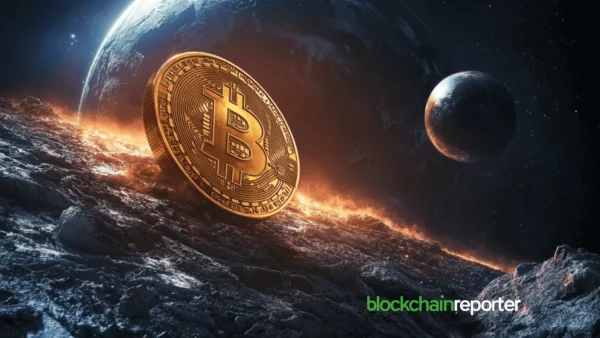
The Japanese government has been quite vocal about its ambitions to become a Web3 powerhouse and is forging ahead with its plans. Last month, the ruling Liberal Democratic Party published a whitepaper with several recommendations it believes can help to expand the country’s crypto sector and create a more welcoming environment for Web3 entrepreneurs.
The whitepaper came in the wake of some encouraging comments from Japanese Prime Minister Fumio Kishida in February when he stated his belief that blockchain technology could help to solve a number of problems in the country.
Responding to questions from a colleague in Japan’s House of Representatives, Mr. Kishida said there are “various possibilities for using Web3 in Japan”. He explained that the government is currently considering using technologies such as non-fungible tokens and decentralized autonomous organizations in support of the “Cool Japan” strategy that aims to showcase Japanese innovation and culture across the world.
“If you consider DAOs, people who are interested in the same social issues can form a new community,” Kishida said. “NFTs can also be used to diversify the income of creators and maintain highly loyal fans.”
Such statements seem to bode well for Japan’s stated ambitions to become one of Web3’s leading lights. But for all of the government support and encouragement, the implementation of these emerging technologies in a conservative society such as Japan will be troublesome, both for the government and the companies attempting to build them. Some unique challenges Japan faces include its aging population and a risk-averse culture, which tends to emphasize stability over disruption.
One person who knows this only too well is Sota Watanabe, founder of Astar Network, a smart contract platform that provides incentives to Web3 developers.
In a recent interview with Yahoo Finance, Watanabe said there is a lot of enthusiasm among Japan’s government and younger population for Web3. “The reason is very simple, because Japan used to be number one in terms of cars and electric goods,” he said. “But we completely missed out on Web2. We don’t have a Google, a Meta, or an Amazon. We don’t even have an Alibaba or a Tencent.”
According to Watanabe, one of the reasons for Japan’s failure in Web2 is its tendency to look inwards. “Japan is a big market, and this is an issue,” he said. “Companies can provide services and products in Japan only and they can make money. However, the problem is this market is shrinking. Japan is an elderly society. So we need a company or a founder to make products that can make money outside of Japan, in order to grow the economy.”
Japan has made some progress in the crypto space. The country was notably one of the first in the world to declare that Bitcoin can be accepted as a means of payment, doing so as early as 2017. It’s also notable that Japanese consumers were unaffected by the recent meltdown of FTX, formerly the world’s second-biggest cryptocurrency exchange. While thousands of FTX users globally remain unable to access their funds, strict regulations ensured that FTX Japan separately held around 19 billion yen in funds from its 100,000 local customers. As a result, those users have been able to reclaim their assets. In addition, Japan is widely recognized as being a “crypto-friendly” country that plays host to some of the top blockchain events of the year.
That said, there are a number of obstacles Japan must overcome if it is to piggyback on the emergence of Web3 to power new economic growth. According to a Ministry of Economy, Trade, and Industry report, one of the major challenges it faces is a lack of entrepreneurs. Reasons for this include a lack of exit opportunities and low domestic demand for innovative new products and services, the report found.
On the other hand, Watanabe said Japan does have a lot of enthusiastic creators who’re keen to build on Web3. “There are a lot of creators, gaming companies, and manga anime creators who would like to work on Web3, especially NFTs,” he said.
The difficulty they face, he said, is their lack of understanding about doing business globally. “We have a lot of people who understand how to do business in Japan, and they can speak Japanese, but we don’t have many people who understand global business and who can speak English very well,” Watanabe said.
In order to change this dynamic, Japan is going to need to give birth to at least one truly groundbreaking Web3 company that showcases the potential of blockchain technology and also serves as an example to inspire other Japanese entrepreneurs.
“In the age of Web3, we have to make something new,” Watanabe said. “We have to make a very innovative company that can become big, just like Sony or Toyota. If we cannot make it, I think our economy is going to shrink. So it is really important for Japan to make at least one successful use case within the Web3 arena.”
Japan’s government is doing its best to inspire this. The country recently became one of the first in the world to launch a pilot project for a central bank digital currency, also known as the “digital yen” in April 2023. At the same time, it is pushing Japanese firms to start paying salaries to employees digitally.
The move to embrace crypto and Web3 in Japan is clearly a strategic one, aiming to spark new life into an economy that has been stagnant for several years now. The challenges Japan faces in trying to become a Web3 powerhouse are significant. However, with continued momentum from the government and the determination of entrepreneurs like Watanabe, there are reasons to be optimistic that Japan is headed in the right direction.








